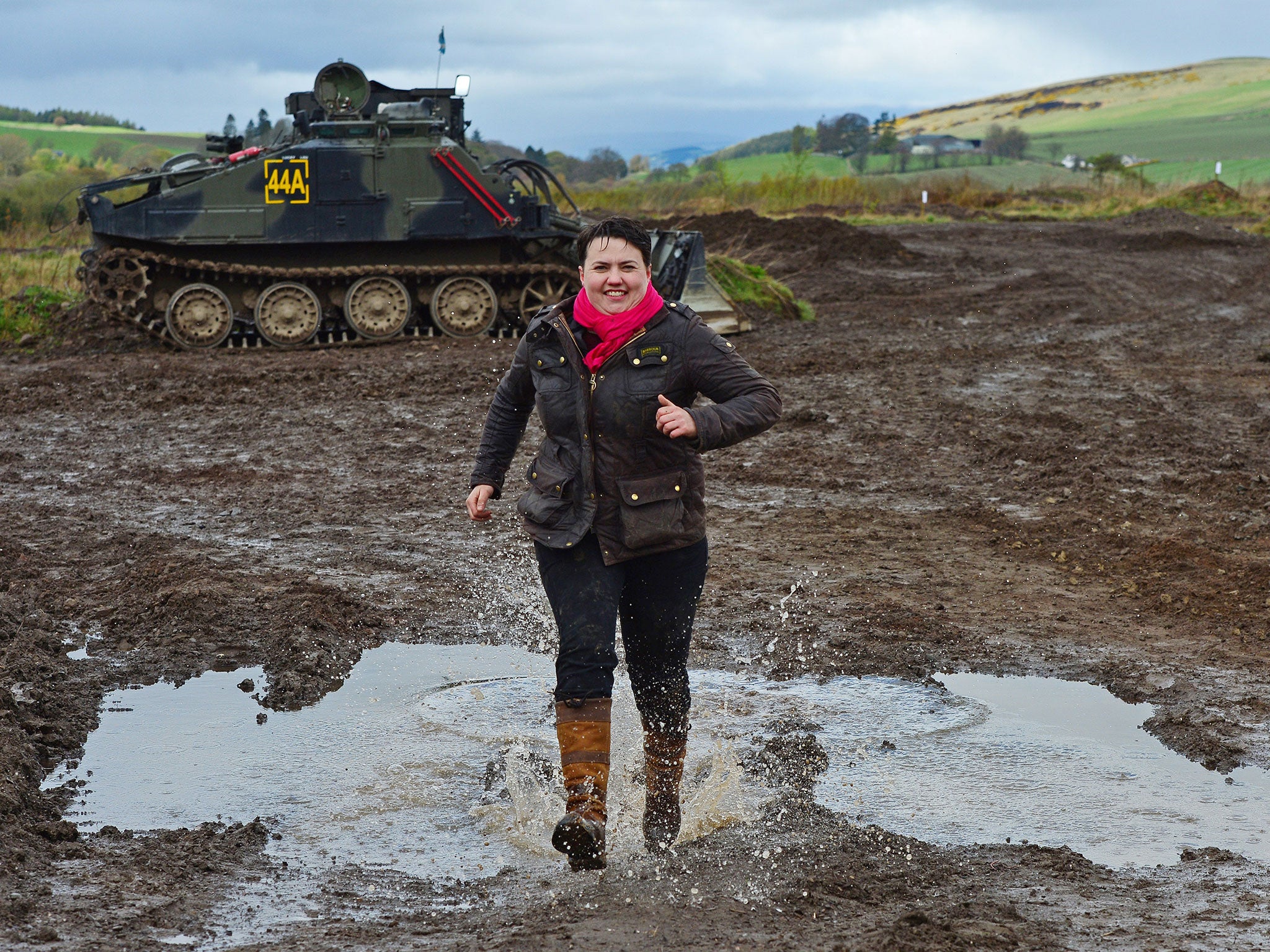Conservatives closing gap on Labour in race to be official Scottish opposition
Could Labour be overtaken by the Conservatives as Scotland’s official party of opposition?

In a little over three months, Scots will head to the polls to decide which party they would like to represent them at Holyrood. While much of the attention has focused on whether the Scottish National Party will win an unprecedented third term – which looks more likely with every passing day – the race for second place is becoming increasingly tight.
Could Labour be overtaken by the Conservatives as Scotland’s official party of opposition? To many the question might seem ludicrous: for years, the Tories have been regarded as a toxic brand north of the border and at the 2015 general election returned only one MP in Scotland.
Yet with Labour still seemingly stuck in a post-referendum malaise, the Scottish Conservatives have slowly but steadily been making progress in the polls. The most recent, published a week ago, had Ruth Davidson’s party increasing its support to 17 per cent in the constituency vote. Labour, by contrast, lost ground meaning the gap between the two parties stands at only 4 per cent.
Tory strategists believe the reversal in fortunes can be explained by its unashamed stance as a unionist party – attractive to Scots who voted No in the referendum and want to prevent a re-run at all costs – and commitment to keeping income tax rates the same or lower than at present when Holyrood is devolved further powers in this area.
“We’re pretty confident we’re going to have our best ever result since devolution, and it looks pretty certain that Labour’s going to have its worst,” said a senior party source. “We’re confident our message is getting across and that people who previously haven’t voted Conservative – perhaps ever – are giving us a proper look.”
The Tories also have another potent weapon in their leader. Ms Davidson has gained plaudits for her down-to-earth personality and assured debating style, which was made apparent to voters in the televised sparring ahead of the general election. But she has also been credited with reorganising the Scottish Tories, replacing many of the party’s longstanding candidates with a new breed of younger, moderate men and women to appeal to voters from the centre ground.
“People see her and they see someone they relate to,” a Tory source said. “It’s not just about an attractive personality – she’s also spent four years doing a fairly fundamental rewiring of the party.” The SNP, still with a comfortable lead in the polls, can afford to sit back and watch the developing scrap with interest. Some party insiders think the Tories are still very unlikely to turn the tables, but others are considering the possibility and its implications for the dynamics of the next Scottish Parliament.
While having a Tory opposition with wildly different views on some of the nation’s big issues might make SNP leader Nicola Sturgeon’s job easier on the one hand, her advisers are wary that Ms Davidson might provide a tough opponent in Holyrood’s weekly First Minister’s Questions.
“Would having Ruth Davidson as leader of the opposition in the Scottish Parliament be more challenging for us than [Scottish Labour leader] Kezia Dugdale? Yes, I don’t think anyone would argue with that,” said a senior party source. “She’s done a good job of disassociating the Tories in Scotland with the Westminster party and people say they like her even if they would never vote for her.”
The Tories now have 15 seats in the Scottish Parliament to Labour’s 38. But there have been a lot of earthquakes in Scottish politics in recent years and come 6 May, the Tories will be hoping for another one.
A Labour spokesman said: “The Tories have been promising a great Scottish revival since 1997 and it never appears.”
Join our commenting forum
Join thought-provoking conversations, follow other Independent readers and see their replies
Comments